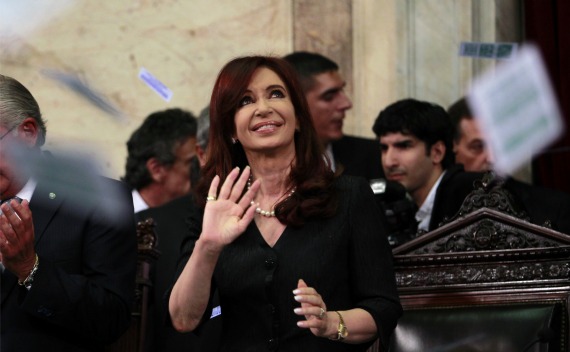Looking Ahead to Argentina’s October Election
More on:

By the end of next week, Argentina’s current president Cristina Fernández de Kirchner will have to decide whether she’s in or out of the upcoming presidential race. According to recent polls, if the Peronist leader runs, she will win reelection, likely in the first round. Nearly half of Argentines say they would vote for her if the election were today, and her overall approval ratings top 60 percent.
Her opposition is divided and as a result more easily conquered. Ricardo Alfonsín, the Unión Cívica Radical (UCR) candidate and son of former President Raúl Alfonsín, leads the pack, but his support is just under 20%. So far he has been unable to bring other opposition figures into his fold, likely dooming his rise.
Argentine presidential races often come down not to a contest between political parties but between different factions within the Peronist party. Here Kirchner’s best-known challenger is Buenos Aires province political boss and former president Eduardo Duhalde. Once an ally, now a fierce opponent, Duhalde has the support of some breakaway Peronist factions. But with political patronage flowing (boosted by a strong economy), it will be difficult to entice many other party leaders away from the Kirchner fold.
In the end, assuming Cristina jumps in to the race, it is hers to lose. The challenge will be maintaining her current momentum through October. A bumper soya crop and a booming Brazil should help. Most expect Argentina’s economy to continue growing at a fast clip – 5 to 6 percent -- over the next four months. Energy could pose a problem, as years of (government mandated) low prices have both increased demand and limited investment. A cold winter could expose the cracks in the system, causing a (politically challenging) energy crisis. But if Argentina can muddle through without any large shocks, Cristina looks to remain in the Casa Rosada for another term. The markets seem to have come to this conclusion as well and are voting with their proverbial feet: capital flight increased during the first 5 months of the year.
More on:
 Online Store
Online Store
